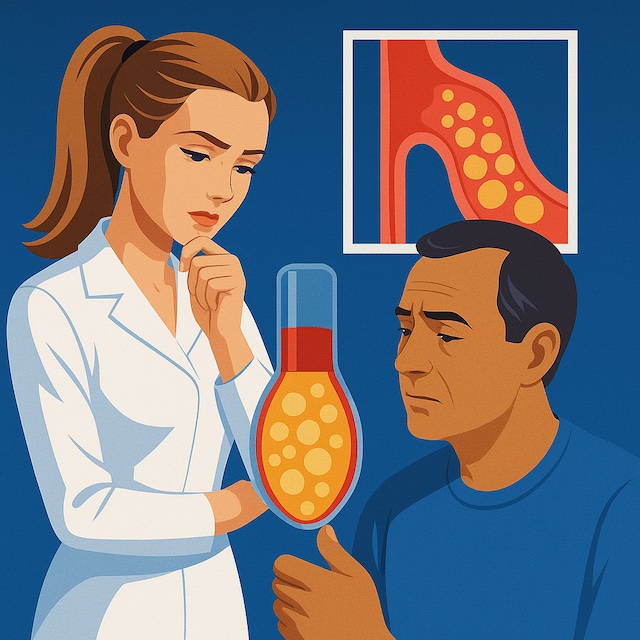Understanding High Cholesterol
Cholesterol is a fatty substance found in your blood. Your body needs it to build healthy cells, but too much of it can lead to serious health problems, including heart disease and stroke. High cholesterol doesn’t usually cause symptoms, so many people don’t realize they have it until it leads to complications.
There are two main types of cholesterol:
- LDL (Low-Density Lipoprotein): Often called "bad" cholesterol because it can build up in the arteries and lead to blockages.
- HDL (High-Density Lipoprotein): Known as "good" cholesterol because it helps remove excess cholesterol from the bloodstream.
What Causes High Cholesterol?
Several factors can contribute to high cholesterol levels, including:
- Unhealthy Diet: Eating too many saturated fats, trans fats, and processed foods can raise cholesterol levels.
- Lack of Exercise: Physical inactivity can lower good cholesterol (HDL) and raise bad cholesterol (LDL).
- Obesity: Excess weight is linked to higher levels of LDL and lower levels of HDL.
- Smoking: Damages blood vessels, making it easier for cholesterol to build up in the arteries.
- Genetics: If high cholesterol runs in your family, you may be more likely to develop it.
- Certain Medical Conditions: Diabetes, thyroid disorders, and liver disease can contribute to high cholesterol.
Signs and Symptoms
High cholesterol itself doesn’t cause symptoms, but it can lead to serious conditions over time, such as:
- Chest Pain (Angina): Due to reduced blood flow to the heart.
- Heart Attack: Caused by a blocked artery.
- Stroke: If cholesterol buildup blocks blood flow to the brain.
- Peripheral Artery Disease (PAD): Reduced blood flow to the legs, leading to pain and mobility issues.
How is High Cholesterol Diagnosed?
The only way to know if you have high cholesterol is through a blood test called a lipid panel, which measures:
- Total cholesterol
- LDL cholesterol
- HDL cholesterol
- Triglycerides (another type of fat in the blood)
Managing and Treating High Cholesterol
Lifestyle Changes
- Eat Heart-Healthy Foods: Focus on fruits, vegetables, whole grains, lean proteins, and healthy fats like olive oil and avocados.
- Exercise Regularly: Aim for at least 30 minutes of physical activity most days of the week.
- Maintain a Healthy Weight: Losing even a small amount of weight can help lower cholesterol.
- Quit Smoking: Improves HDL levels and benefits overall heart health.
- Limit Alcohol Intake: Drinking in moderation (or not at all) helps maintain healthy cholesterol levels.
Medications
If lifestyle changes aren’t enough, doctors may prescribe medication, including:
- Statins: The most common drugs used to lower LDL cholesterol.
- Ezetimibe: Helps reduce cholesterol absorption from food.
- PCSK9 Inhibitors: Lower cholesterol in people with genetic conditions or high risk of heart disease.
When to See a Doctor
Regular cholesterol screenings are important, especially if you have a family history of heart disease or other risk factors. If you haven’t had your cholesterol checked in a while, consider scheduling a test. Keeping your cholesterol levels in check is one of the best ways to protect your heart health for years to come.


